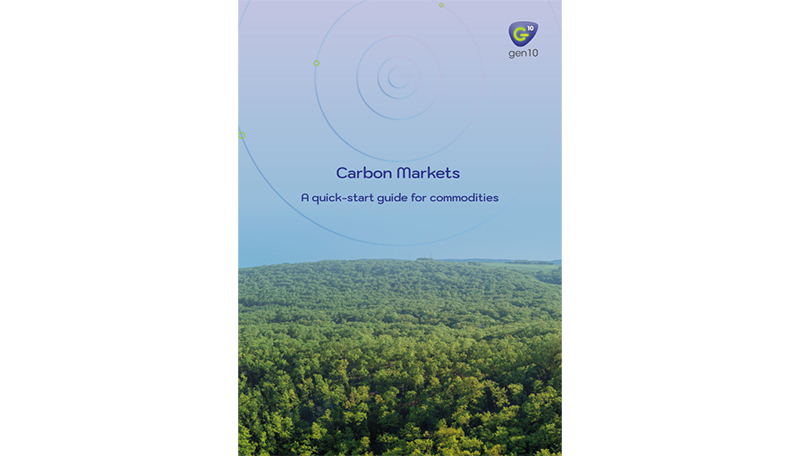As the world continues to grapple with the effects of climate change, more and more attention is being directed towards carbon markets. And it’s not just environmentalists and policymakers who are paying attention – commodity traders are also taking note. In recent years, there has been a growing interest among commodity traders, who are looking to reduce their scope 3 emissions, offer lower-carbon products, reduce their carbon exposure, or simply trade in these emerging markets.
Carbon markets provide a recognised pathway towards achieving these goals by allowing organisations to purchase carbon credits. Carbon credits represent 1 ton of carbon dioxide removed or prevented from being released into the atmosphere. They can be allocated to 1 ton of a company’s real-world emissions to offset them and bring the net carbon emitted to zero, hence the term “net zero”.
These carbon markets are full of complexity, from whether they are voluntary or compliance-based, to the types of offsetting projects, registries, and certification bodies they rely on. And even within a single voluntary carbon market, there can be many factors affecting a credit’s value.
Introducing Carbon Markets: a quick-start guide for commodities
This whitepaper is designed to provide a quick overview of the different types of carbon markets for commodity traders, giving the background you need to start investigating how these dynamic new markets could work for your business.
It focuses on the challenges of managing data in carbon markets, including the need for effective data sharing within organisations to respond to changes in ever-evolving markets. It also highlights the importance of data transparency, both for markets and in helping your organisation to realise the full value of every credit and become a supplier of choice to clients. If there is one takeaway message, it is that participating in carbon markets means getting your data in order.
The whitepaper also explores the factors driving carbon markets, different types of carbon market, and why the many different quality metrics mean it can be so difficult to value credits.
Download your copy now



